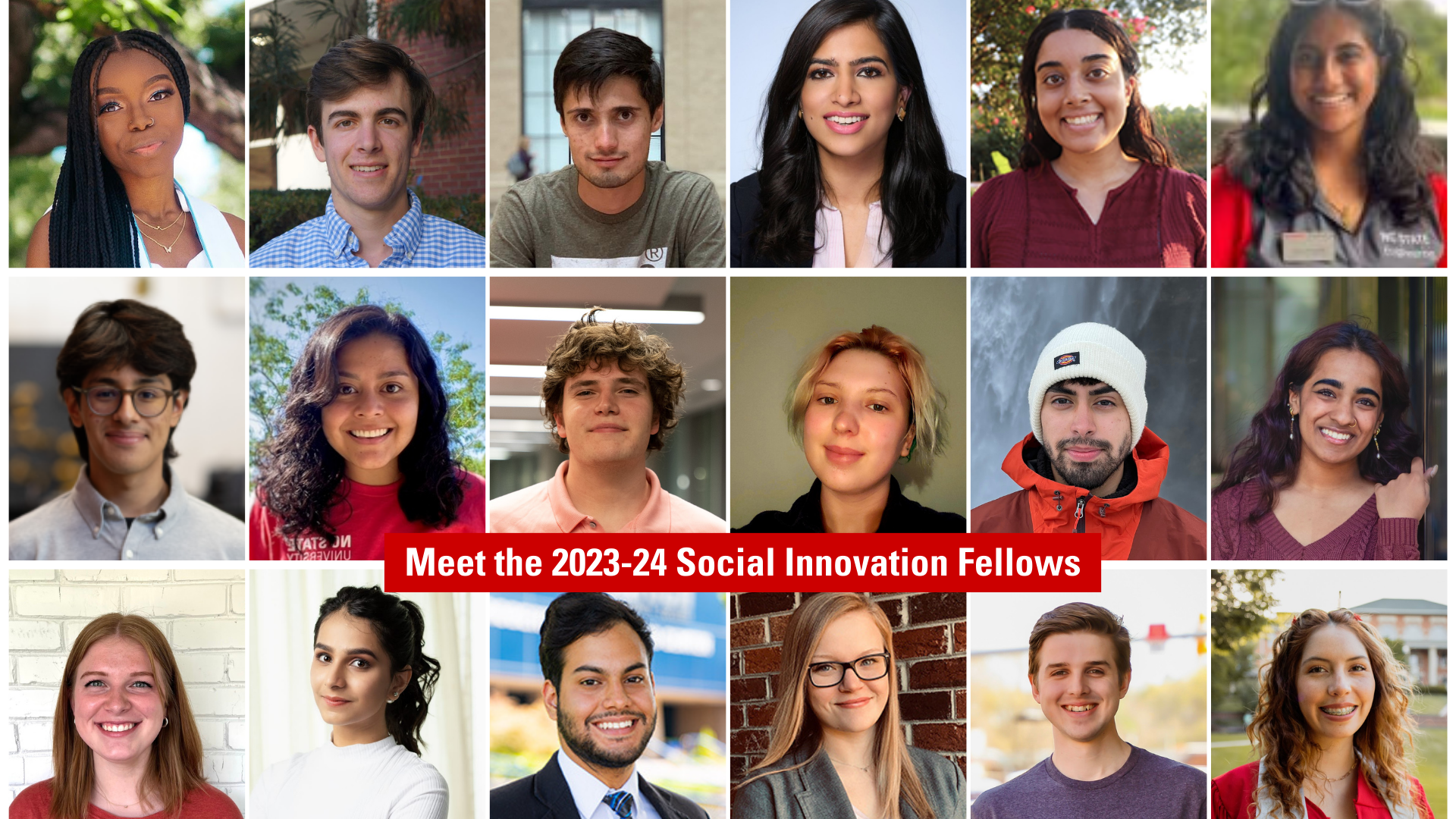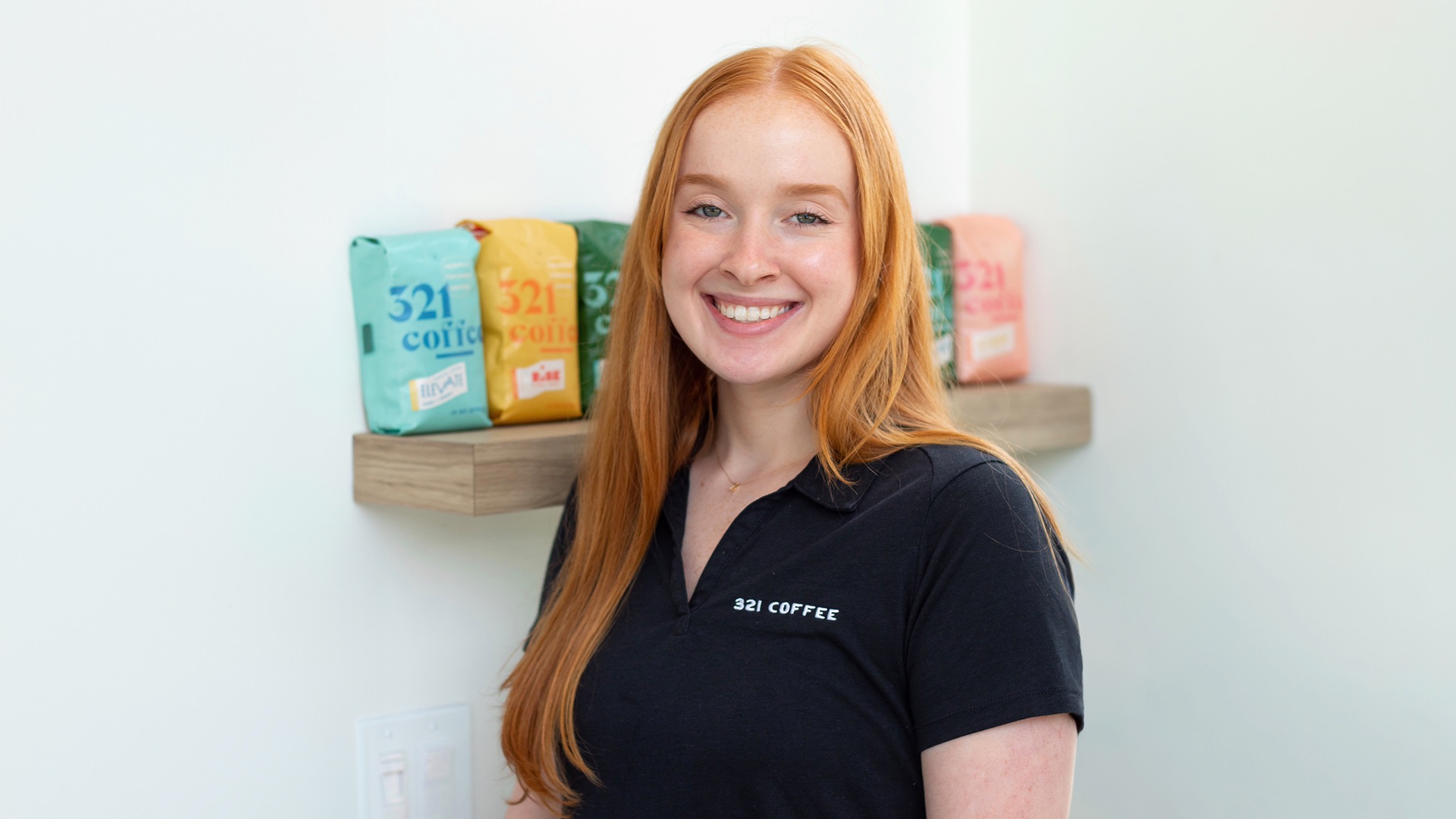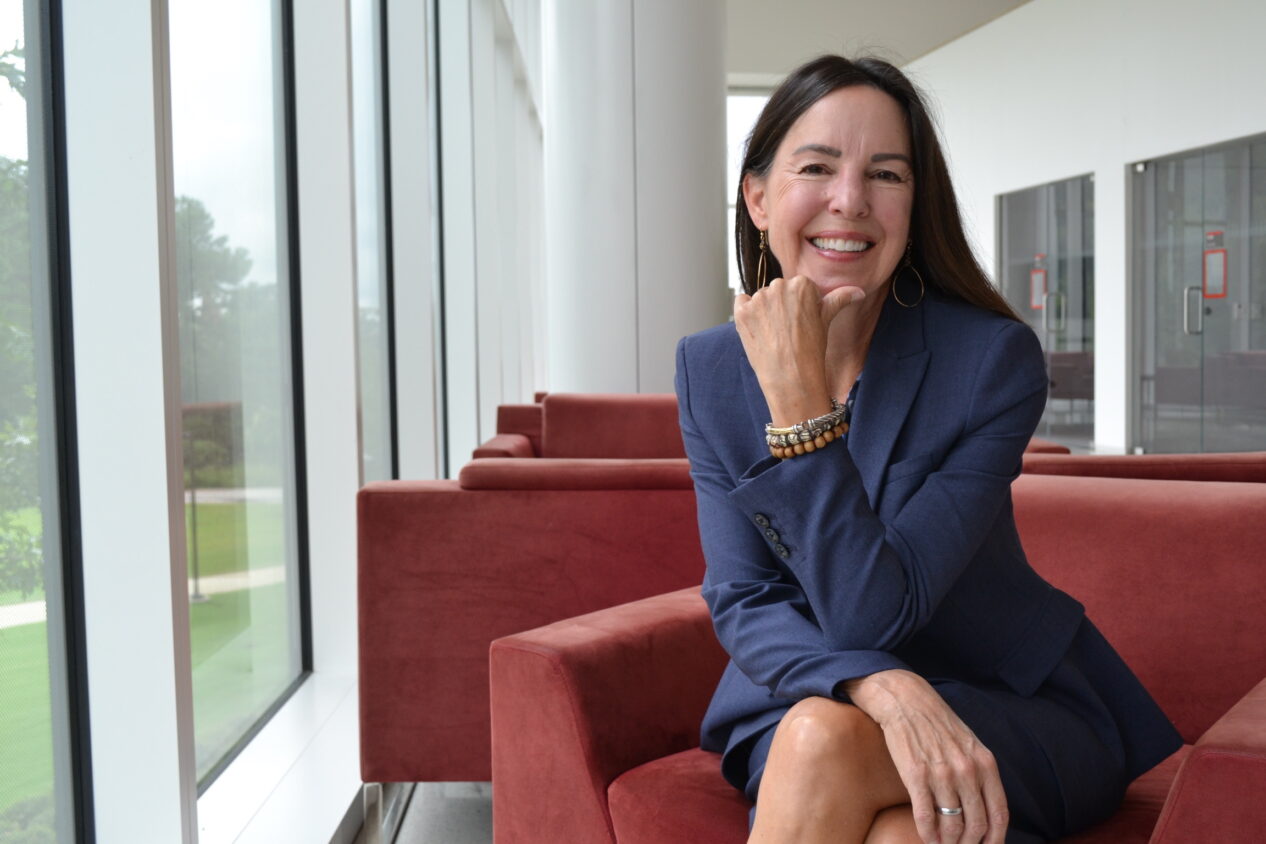Six Ventures Selected to Partner With 2020-21 Social Innovation Fellows
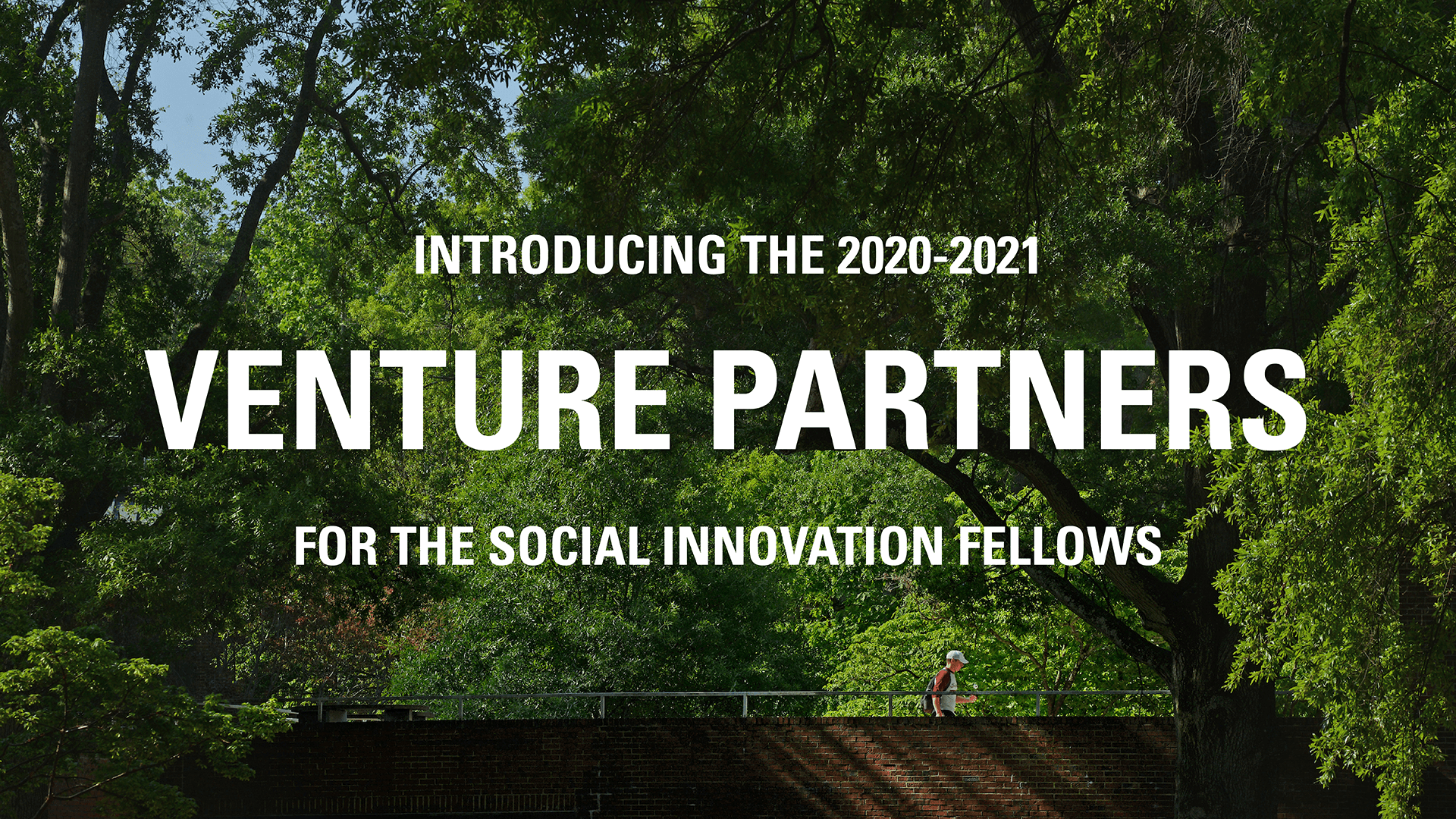
Since the program’s inaugural cohort in 2017, the students who comprise the NC State Social Innovation Fellows have worked with inspiring organizations that seek to make the world a better place. These ventures are curated by staff with the intention of ensuring a broad range of leadership and organizational structures, a mix of local and international stakeholders and meaningful social challenges.
The six ventures selected for this academic year are radically different from one another; however, they have two things in common: the work they do is as challenging as it is vital, and that work has been made all the more difficult by the ongoing COVID-19 pandemic. Vulnerable populations are now facing greater risks and are more difficult to reach safely, charity-based organizations are being stretched to their limits as need rises and generosity declines, and distance guidelines require drastic operational changes.
Innovation in social change work is more important right now than ever before. We hope that the collaborative work of our Venture Partners and their Fellows teams can help them overcome the obstacles they are facing and continue to do amazing work.
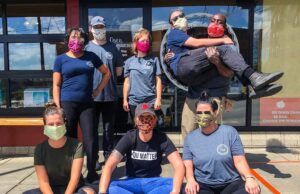
A Place at the Table
A Place at the Table is a pay-what-you-can cafe at 300 W. Hargett St in downtown Raleigh created by social entrepreneur Maggie Kane. Their goal is to provide good food and a welcoming community for everyone, regardless of economic status.
While their menu is priced, customers that may not be able to afford full price can pay less or choose to volunteer for their meals. Additionally, customers that are in financially stable positions can pay more for their meal to ensure someone else can afford one in the future.
The Place at the Table model has inspired a lot of generosity in the Raleigh community and is closing on three years of success and continually spreading kindness.

Episcopal Farmworkers Ministry
https://episcopalfarmworkerministry.org/
Returning for their second year with the Social Innovation Fellows, the Episcopal Farmworkers Ministry (EFWM) is a nonprofit organization located in Dunn, NC dedicated to improving the quality of life for migrant farm workers.
Despite being part of the agricultural backbone of our economy, migrant farmworkers can be an incredibly vulnerable population with little autonomy or voice. They often face extreme working conditions and a lack of control over their living situation and schedules all while being paid under the poverty line.
EFWM works to provide farmworker communities with necessary resources like food and clothing as well as a sense of community and support. This year, they are working particularly hard to combat the extreme effect that COVID-19 is having on this population. Migrant workers are often considered essential food workers and must remain on site, but at the same time receive little protection and few opportunities to properly social distance.
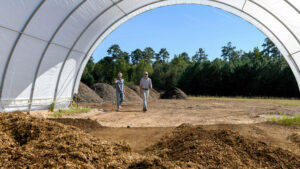
NC State Composting Facility and Research Cooperative
https://recycling.ncsu.edu/compost-facility/
The NC State Composting Facility and Research Cooperative is a campus unit that handles nearly all of NC State’s organic waste. One of their major accomplishments is creating a “closed loop system” for NC State where all of the university’s organic waste is composted and then reused in landscaping and food production.
The Facility’s vision is to be more than a valuable utility, however, but an example of best practices and a hands-on laboratory where students can learn, experiment and exhibit sustainability leadership. They are striving to provide a space where everyone can better understand the environmental benefits of composting and where on-site academic research can flourish.
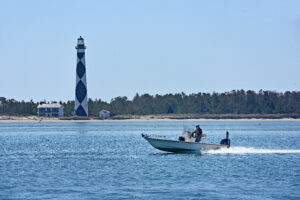
NC Sea Grant
NC Sea Grant is an NC State-based research organization with a goal to sustainably steward ocean, coast and watershed resources while preserving the waterscapes that make this state beautiful and unique.
The research supported by the organization covers a variety of important issues from restoring and protecting coastal ecosystems to wetland flood prevention. One major focus across their programs is the amount of student research they have supported and their desire to be an educational resource to citizens and businesses alike with the goal of transforming our state’s relationship to water and coastal resources.

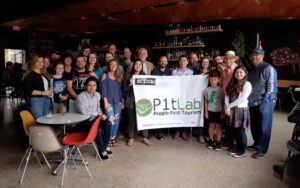
People-First Tourism
https://www.peoplefirsttourism.com/
People-First Tourism (P1T) is a social enterprise created by NC State faculty member Duarte Morais. P1T specializes in discovering and advertising unique and entrepreneurial tourist experiences. Many of their events and “journeys” are focused on storytelling and sharing what makes an area, and the people that live there, so vibrant and beautiful.
The experiences they support are educational as well as entertaining, with tours ranging from paddling a river while learning about its deep religious and cultural significance, to adventurous forest expeditions led by local area microphiles. Most importantly, P1T focuses on creating and supporting ethical tourism, with the hope of nurturing strong relationships with local communities and showcasing local enterprises, culture, and creativity.


All We Are
All We Are is a Raleigh-based nonprofit that helps provide clean energy by installing solar panels in Ugandan villages. Founded by social entrepreneur Nathan Thomas, the organization focuses on community-oriented buildings such as hospitals or schools and uses solar grids to help provide them with reliable and renewable energy access.
Their work occurs all over Uganda and is supported by a mixture of volunteers and local employees. To ensure that their solar grids are useful in the long term, community members are trained in operation, maintenance and installation and are required to form a solar use committee which must be 50% female. This sustainable and community-centered organization is as much about empowering people as it is about powering buildings.
Improving the world will always be a team effort. Each venture that is selected to partner with the Social Innovation Fellows is part of a greater program principle to align each project with the UN Sustainable Development Goals. As we continue to adapt to the ever-changing circumstances that define this academic year, the NC State Social Innovation Fellows continues to strive to contribute as much as possible to a global effort to create lasting change. We are looking forward to sharing the journeys of each of these teams as they learn to use an entrepreneurial mindset to tackle the challenges posed by this year’s ventures.
To learn more about how we interweave the SDG’s into our program and stay up to date on Fellows’ activities, follow us @ncstatesif on Instagram.
